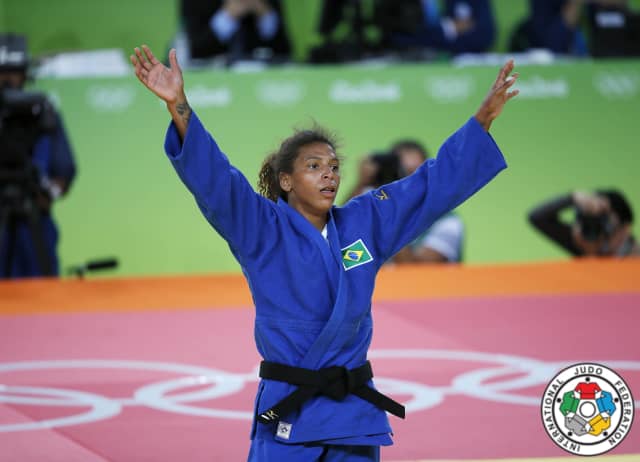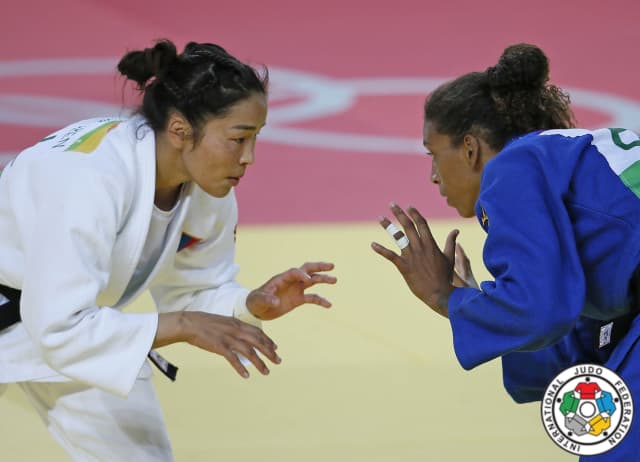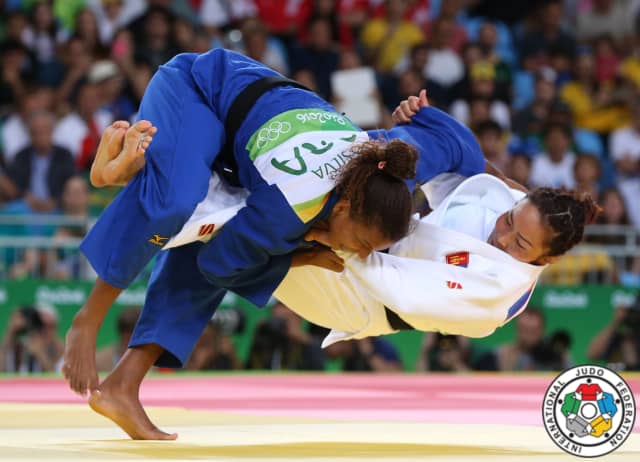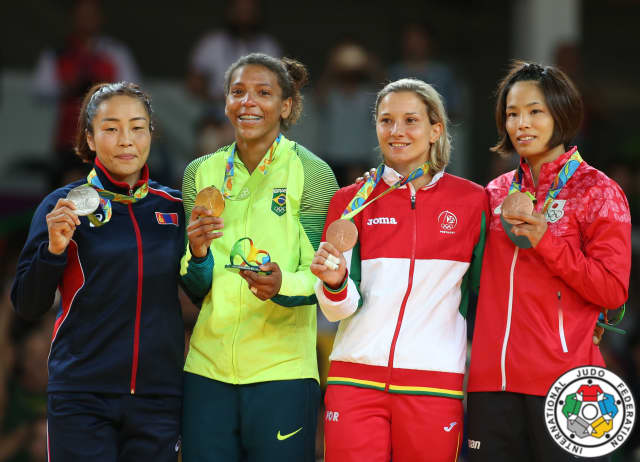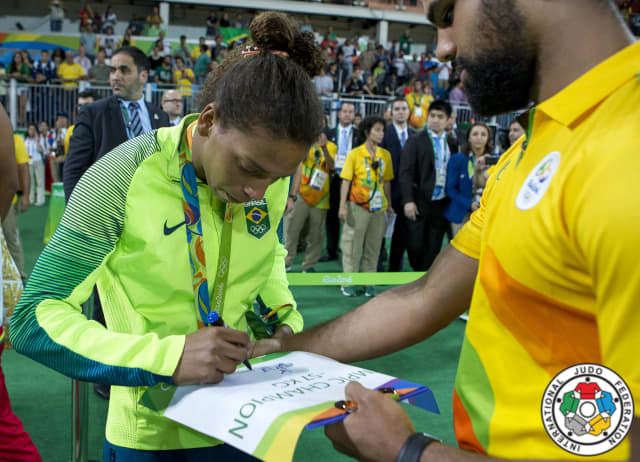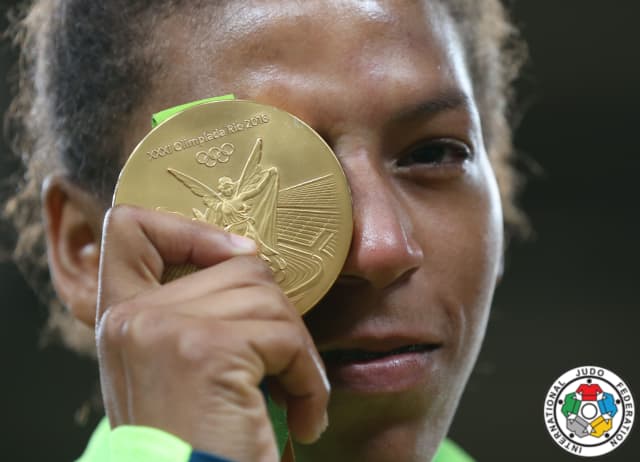We introduced the statistics, the almost impossible feat and the question in our first article in the series, which can be found here:
https://www.ijf.org/news/show/151-olympic-champions-tokyo-to-tokyo
A reminder of the question:
It could be said that to be in the company of an Olympic judo champion is to be presented with someone whom has reached an absolute pinnacle, a ceiling which cannot be surpassed; there is nowhere further to ascend in the world of sport. We often find Olympic champions speaking with freedom and certainty, unafraid to share an opinion, speaking of their lives and paths with confidence. For many we feel there is peace, and that can be magnetic and inspiring.
So the question is, did they become Olympic champion because of that character or did they become that person having won the Olympic gold medal?
“The short answer is that it is both of those things. My character contributed to me becoming Olympic champion. After the gold medal though, I also become an example for others and that was an important part of the process. Before and after the Olympic gold medal are both important, there are two sides."
"I had a lot of resilience. When I was a child and wanted to train judo, I would be out playing football with other children and they said judo is not for girls. This became fuel for me. My first teacher, Geraldo Bernardes, said, in my first class, that I would be Olympic champion. I was 8 years old."
"I had some difficulties along the way. After London 2012 it was very difficult. It was the first time I experienced racism and I was attacked a lot on the internet. I didn’t understand why at all. Ahead of the London 2012 Games I was fourth in the world ranking and there was great expectation on me for the result but I lost. It was during a period of major change in the rules and I touched the leg and was disqualified. It was a mistake. There was a lot on Twitter and other social media saying that I was not a good judoka, as well as commenting on the colour of my skin.
That was a very difficult moment because I knew that judo was really important for both me and my family. With good results in judo I could help my family live a better life. I had a period of 5 months when I stopped judo completely; it was so hard after London.
Then I returned to competition at the end of the year and fought my way into the final of the Tokyo Grand Slam. I did this at -63 kg, not in my category. I came back because I felt I had something else still to do with judo and I wanted my Olympic medal. After the Tokyo Grand Slam I went on to be world champion in Rio in 2013, back in my weight category. That was a turning point for me because I finally agreed that I really can become an Olympic champion too. I had returned to my category in the April and I prepared at home, to be ready for that August worlds."
"Although it took some time to digest everything, especially after London, my character is such that when someone says to me that I cannot, I say that I can. The mental force is the strongest characteristic.
The Olympic gold medal changed a lot of things for me. There was visibility and the expectations of others. There was also much more respect. For those who were so negative after London, it seemed that the medal somehow changed my skin colour for them. There was also financial stability for me and my family.
Before judo we had not even money for shoes. After that medal I could buy a home and could help my mother with her house too.”
Rafaela is among many great champions to continue after winning the biggest medal of all. That part is a whole new mindset and a different level of drive.
“I didn’t stop because I had a lot of medals still to conquer, more young judoka to inspire. I will continue for as long as I can.
My family is the main key, the most important thing that supports my success, especially my sister who was in the national team before me. In Thailand in 2008 at the Junior World Championships, we were both competing. I was champion then too. Now she is coaching and helping others and I respect what she is doing.”
Rafaela continues to compete at the highest level and in 2022 became world champion for the second time, in Tashkent, 9 years after the first world gold.

